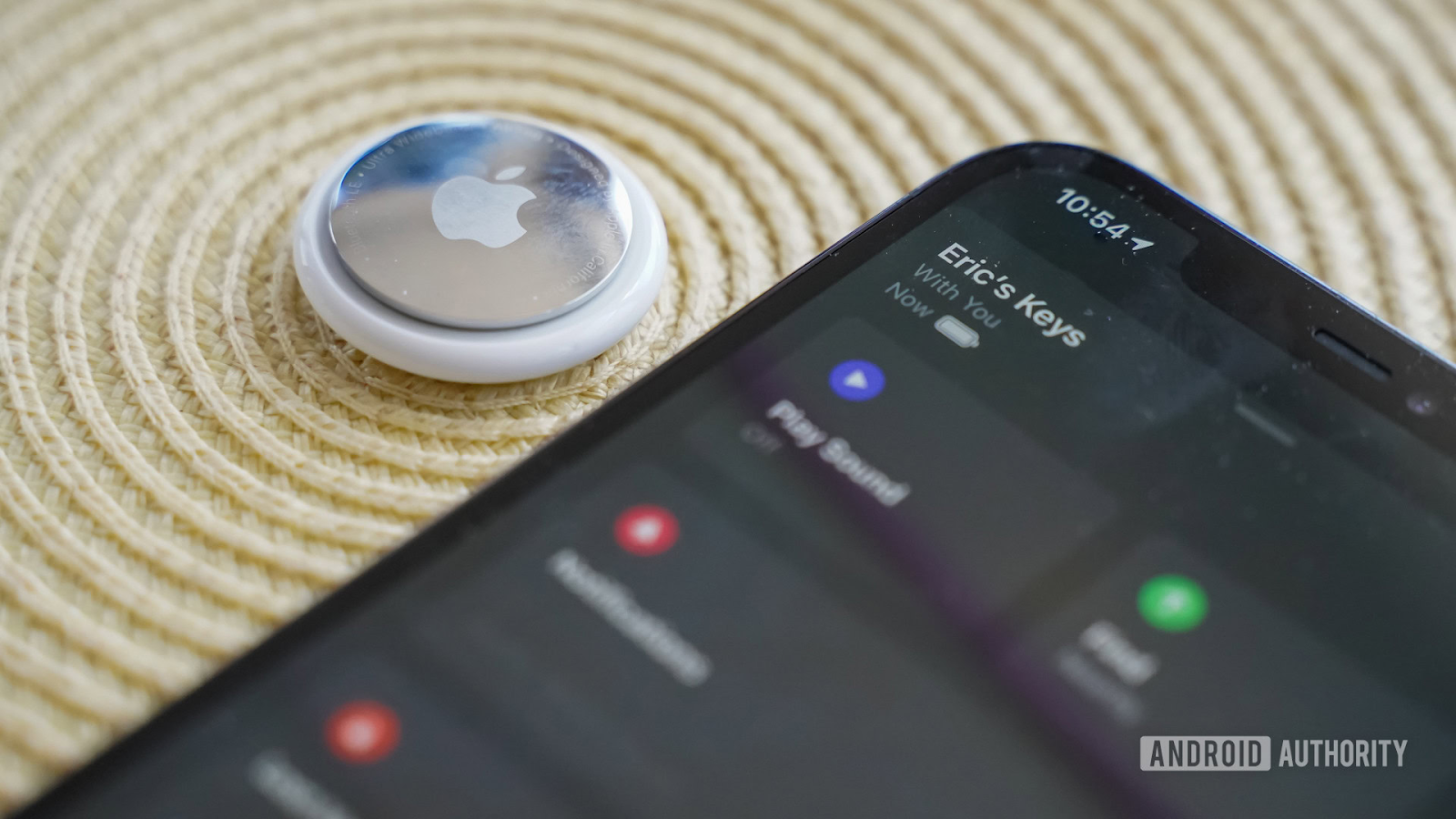For years, Apple users have enjoyed the peace of mind that comes with AirTags, small Bluetooth trackers that help locate lost items. Android users, however, have been left in the cold. But that’s changing.
The Rise of Android Trackers
Several companies have stepped up to fill the void left by the absence of an official Android equivalent to AirTag. These Bluetooth trackers offer similar functionality, leveraging the power of the Android ecosystem to help users find their lost belongings.
How Android Trackers Work
These trackers typically use a combination of Bluetooth and crowdsourced location data to pinpoint the location of your lost item. When the tracker is out of range of your phone, millions of Android devices can help locate it.
Bluetooth connection: When your tracker is within Bluetooth range, you can use your phone to locate it precisely.
Crowdsourced network: When the tracker is out of Bluetooth range, the Find My Device network (or similar) can help you approximate its location.
Top Android Tracker Options
Several companies have launched their own versions of AirTag for Android users:
Chipolo: Offers a range of trackers with different features and price points.
Samsung SmartTag: Exclusively for Samsung devices, but offers some advanced features.
Tile: A well-known brand with a wide range of trackers compatible with Android.
Other options: Numerous other companies offer similar products, providing consumers with a variety of choices.
Features to Look For
When choosing an Android tracker, consider the following features:
Battery life: Longer battery life means fewer replacements.
Range: The distance at which you can locate your item is crucial.
Water resistance: Protection against water and dust is essential for outdoor use.
Additional features: Some trackers offer extra features like loud alarms, LED lights, and temperature sensors.
Privacy Concerns
While these trackers offer convenience, it’s essential to be aware of potential privacy concerns. Ensure the tracker you choose has robust security measures to protect your data.
As the technology continues to evolve, we can expect even more advanced and user-friendly Android trackers to hit the market.
How to Use an Android Tracker
Using an Android tracker is generally straightforward:
Pair the tracker with your phone: Follow the app’s instructions to connect the tracker to your device.
Attach the tracker: Secure the tracker to your belongings.
Locate your item: Use the tracker’s app to find your item if it goes missing.
Most tracker apps provide additional features like creating custom labels for your items, setting up geofences, and receiving notifications.
Tips for Using Android Trackers
Update tracker firmware: Ensure your tracker’s software is up-to-date for optimal performance.
Test the tracker regularly: Check that the tracker is working correctly by simulating a lost item scenario.
Consider multiple trackers: For valuable items, consider using multiple trackers for added security.
Be mindful of privacy: Review the tracker’s privacy policy to understand how your data is handled.
By following these tips, you can maximize the benefits of your Android tracker and protect your belongings.
Advantages and Disadvantages of Android Trackers
Advantages of Android Trackers
Peace of mind: Knowing you can locate lost or stolen items provides a sense of security.
Time-saving: Quickly finding misplaced items can save time and frustration.
Recovery assistance: If your belongings are lost or stolen, a tracker can aid in recovery efforts.
Additional features: Some trackers offer extra features like item finder, geofencing, and temperature monitoring.
Disadvantages of Android Trackers
Privacy concerns: There are concerns about data privacy and potential tracking of user locations.
Battery life: Some trackers have relatively short battery life, requiring frequent replacements.
Accuracy: The accuracy of location tracking can vary depending on the tracker and environmental factors.
Cost: While prices have become more affordable, some trackers can be expensive.
Dependence: Overreliance on trackers can lead to carelessness in protecting belongings.
By weighing the pros and cons, you can make an informed decision about whether an Android tracker is right for you.
FAQs About Android Trackers
General Questions
What is an Android tracker? An Android tracker is a small device that uses Bluetooth and crowdsourced location data to help you find lost or misplaced items.
How do Android trackers work? Trackers use Bluetooth to connect to your phone and crowdsourced data from other devices to approximate the location of your item.
Are Android trackers safe? Most trackers have security measures in place, but it’s essential to review the privacy policy before purchasing.
Buying and Using an Android Tracker
How much do Android trackers cost? The price of Android trackers varies depending on features and brand.
Where can I buy an Android tracker? Trackers are available at electronics stores, online retailers, and the websites of tracker manufacturers.
How long does the battery last in an Android tracker? Battery life depends on the tracker model, but it typically ranges from a few months to several years.
Privacy and Security
Are Android trackers private? While most trackers have privacy measures, it’s essential to read the privacy policy carefully before purchasing.
Can Android trackers be hacked? Like any electronic device, there’s a potential risk of hacking, but reputable brands prioritize security.
Android Trackers and Apple’s AirTags
Can I use an Android tracker with an iPhone? Some Android trackers offer compatibility with iOS devices, but the functionality might be limited.
How do Android trackers compare to AirTags? Android trackers offer similar features but might have different ecosystems and pricing.
Troubleshooting Android Trackers
What if my Android tracker is offline? If the tracker is out of Bluetooth range and not connected to the crowd-sourced network, it will be offline.
My tracker’s battery is low, what should I do? Replace the battery according to the tracker’s instructions. Some models have low battery alerts.
By understanding these additional details, you can make an informed decision when choosing an Android tracker.
To read more, click here

Leave a Reply